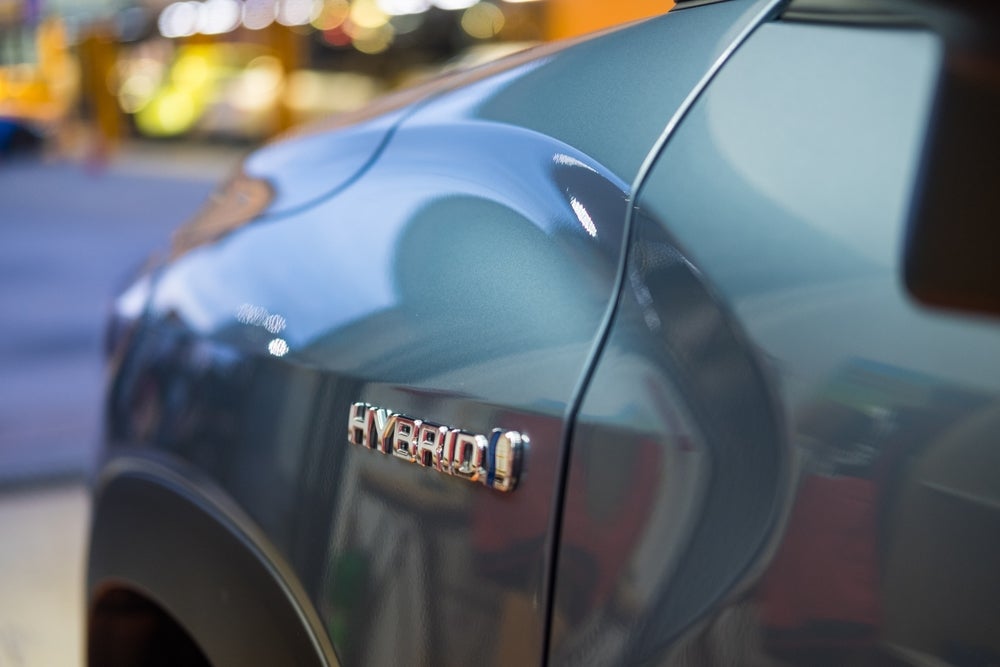
Impinj is a manufacturer of radio-frequency identification (RFID) devices and software. The company was founded in 2000 and is headquartered in Seattle, Washington.
Could you tell us a little about Impinj?
Impinj is a leading RAIN RFID provider and Internet of Things (IoT) pioneer. Our vision is Boundless IoT – trillions of everyday items – such as apparel, automobile parts, luggage, and shipments – connected to the cloud. Together with our partners, we help businesses and people identify, locate, and authenticate the things that matter to them.
For a manufacturer, these things include tools and returnable transit items, valuable assets that are often misplaced in a factory or third-party site. For a logistics company, these things include each shipment or package, uncovering where operational efficiencies can be improved. For a consumer, these things include their checked luggage or their purchase at a self-checkout stand, giving them a better experience.
The Impinj platform uses RAIN RFID. We connect items by delivering a miniature tag chip, smaller than a grain of sand, which our partners attach to small antennas that can go into or onto items. Our reader chips, readers, gateways, and essential software read those items providing valuable data to enterprise systems.
Our partners and end customers rely on our products to increase revenue, improve workflows, and ultimately delight their customers.
How well do you really know your competitors?
Access the most comprehensive Company Profiles on the market, powered by GlobalData. Save hours of research. Gain competitive edge.

Thank you!
Your download email will arrive shortly
Not ready to buy yet? Download a free sample
We are confident about the unique quality of our Company Profiles. However, we want you to make the most beneficial decision for your business, so we offer a free sample that you can download by submitting the below form
By GlobalDataWhat is RAIN RFID?
RAIN RFID is a standards-based wireless technology that connects billions of everyday items to the Internet. It is well-suited to driving visibility and automation that help to drive digital transformation. RAIN RFID can identify up to 1,000 items/second without line of sight (and without touch) from very close to a distance of 30 feet. RAIN RFID tags are battery-free and cost pennies.
Could you give us your thoughts on what gives your solution the edge over the competition?
Easy to deploy and use, the Impinj platform delivers performance and capabilities unequalled by mix-and-match approaches built from other vendors’ products. We are the only company with an integrated RAIN platform spanning tag chips, reader chips, fixed readers, and gateways. And our RAIN focus has enabled us to regularly be first-to-market with innovative, high-performing and high-quality products.
Our global partner ecosystem represents a vast range of services, geographies, solutions, and domain expertise, delivering best-in-class RAIN RFID solutions. Solutions built on the Impinj platform deliver item data to a broad range of applications including inventory management, asset management, and shipment verification. To date, we have enabled connectivity to over 50 billion items, enabling businesses and consumers to derive timely information from their connected items.
Automakers have been among the first to deploy Industry 4.0. I guess RAIN RFID is a prominent part of this transition?
Visibility and automation are key to driving efficiency as thousands of cars are manufactured per day. With tens of thousands of parts used per car, having the right part at the right place at the right time becomes mission-critical.
At companies that have deployed RAIN RFID, workers know more about the things in their facility, where they are, where they’ve been, and when they’re moving. The automation that comes from a RAIN RFID system means that workers don’t need to enter information about what they’ve done into a system or pass along paperwork. A pallet being loaded on a truck, for example, is identified by the RAIN system when it moves past the dock door, and the system managing the warehouse is automatically notified. If that pallet doesn’t belong on that truck, the forklift driver can be alerted by an alarm or light above the door, so they can correct their mistake. Work is more efficient with fewer errors.
Audi and other Volkswagen Group brands have been using RAIN RFID for vehicle identification for a number of years in the assembly line and the body shop. Audi recently announced that a RAIN RFID tag will be attached to every Audi manufactured at their plant in Germany. The tag will stay on the vehicle as it passes through the paint shop and the assembly line right through to delivery to the customer. By providing key vehicle information, such as the body design, paintwork, motorization and equipment of a car, RAIN RFID ensures that every Audi that rolls off the production line is consistent with the configuration selected by its new owner. The technology delivers benefits in non-production areas as well. For example, Audi vehicle logistics employees use a drone that flies autonomously over the vehicle dispatch area, collecting relevant data and helping to ensure that every Audi can be delivered to its new owner after completion. Audi expects RAIN RFID will establish itself as the standard across all systems at their plants worldwide over the coming years.
In what ways can data gleaned from RAIN RFID support automotive manufacturers in the ‘new normal’?
Many automotive plants already depend on RAIN RFID for automation and efficiency in vehicle assembly, safety compliance, and quality operations. With RAIN they can minimize or eliminate manual or paper-based processes that can be time-intensive and error-prone. Auto manufacturers can use RAIN RFID to:
- Connect things such as totes, boxes, assets, and pallets, gaining real-time insights.
- Track, monitor, and locate work-in-progress or valuable assets like forklifts, pallet jacks, tools, returnable transport items, and mobile IT assets.
- Verify inbound and outbound shipments, confirming the correct items are being loaded and unloaded.
Daimler has announced plans to fully digitize production operations by 2025. For their Mercedes Benz Sprinter vans, they use RAIN RFID to automatically track and identify parts including door mirrors and seats so production, logistics, and quality assurance employees can know exactly where a particular component is at any given time. With this information, they can respond flexibly to changes, such as delays, and change plans on short notice. In addition, they always know the current warehouse stock and that the right component was installed on the right vehicle. Daimler’s suppliers attach the RAIN RFID tag to components and are also able to take advantage of the technology in their production and logistics operations.
Presumably, RAIN RFID is also helping the auto industry ease the semiconductor chip shortage?
As we have all seen, automotive companies have been severely impacted by the chip shortage. In many cases, production lines have needed to shut down due to availability. Understanding what you have, and where it is, is more important than ever in an environment impacted by supply shortages.
We began seeing companies driving for digital transformation with improved visibility and operational efficiencies before COVID-19 and the chip shortage. And we are seeing businesses accelerate their plans now. Businesses are going to demand visibility and drive for operational efficiencies that enable them to better respond to changes in the future.
You have given us a glimpse of the possibilities when RAIN RFID becomes part of the supply chain for vehicle manufacturing. In what other ways can it be used in the auto industry?
Another common use case in the automotive industry is the tracking of containers. Honda, Toyota, Mazda, Nissan, GM, and others use a RAIN RFID based solution to deliver container visibility and control between OEMs, their suppliers and transportation service providers. Some industry estimates state that between 15-20% of total container stock is stolen and/or lost each year. And on average, automakers allocate 10% of their initial fleet cost annually for the repair and replacement of containers, of which 5% is specifically for container losses. RAIN RFID allows companies to better track returnable shipping containers travelling between suppliers and manufacturers and back again reducing loss and delays. By reducing container loss and inefficiency, OEMs and suppliers can realize unparalleled cost savings.
Also, RAIN RFID, allows auto manufacturers to offer advantages to consumers after-sales–for instance service employees can access and use information stored in databases to retrace which parts are installed in a vehicle.
And Michelin wants tyres to become part of the Internet of Things. Michelin intends to equip all of the automotive tyres it produces with RAIN RFID by 2023. They currently equip about 90% of their truck tyres with RAIN RFID tags and their expansion to automotive tyres highlights the benefits of the technology. Michelin’s vision is really broad and exciting. They see use cases including better tyre management, predictive maintenance, and driver-assistance feature optimization.
I am excited to see these benefits and the new offerings that automotive manufacturers, their suppliers, and their sales and service teams will offer consumers in the future.
What have you learned during the pandemic that you did not expect to learn?
I have been consistently amazed by the resilience of people and businesses in these difficult times. We haven’t had the confidence in supply and delivery that we had become accustomed to, and yet we have continued to move forward. This year has caused a lot of businesses to rethink their operations. I think they now see how important it is to have good visibility into the systems that run their business along with the agility to respond to disruption. I expect that there have been many hard lessons learned in organizations across the globe.
Warehouse operations have had to navigate both increased demand along worker limitations as they’ve enacted social distancing practices. This crisis has made operations managers rethink practices and look to automation to keep teams working safely. Since RAIN RFID is a wireless technology, it can be used to identify all items inside a closed box, ensuring contents are complete and correctly routed along with conveyor systems. This not only speeds up automated systems but also limits the need for people to step in to scan barcodes or check contents. Technology makes jobs more accurate, more efficient — making employees more successful and keeping them safe.







